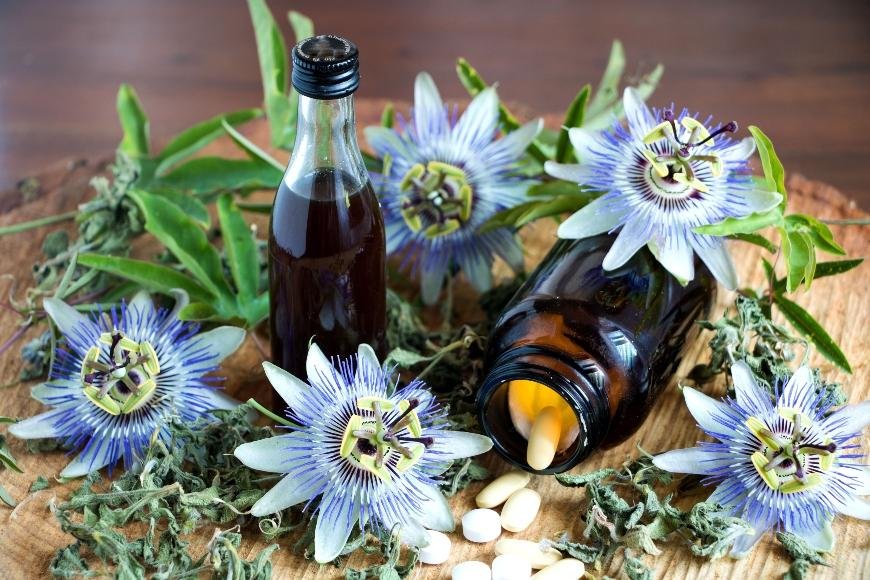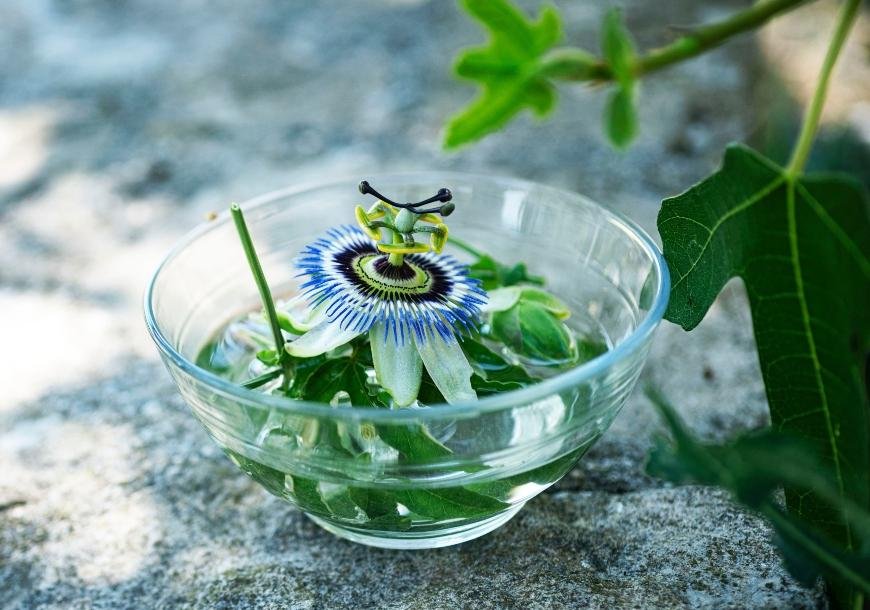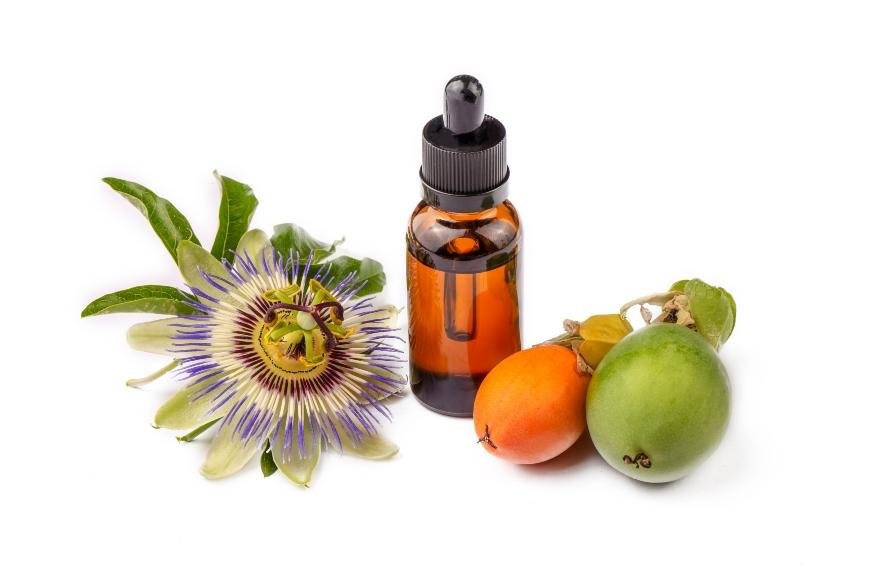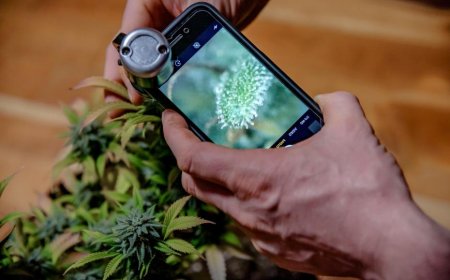How to use Passionflower
Learn how to use Passionflower for relaxation and stress relief with methods like tea, smoking, and tinctures in our comprehensive guide.

How to use Passionflower is a topic gaining popularity among young adults seeking natural remedies for stress relief and relaxation. This herb, commonly referred to as passion vine or apricot vine, has been utilized in traditional medicinal practices for its calming effects over time.
In this blog post, we will explore the various ways to make use of Passionflower's calming properties. You'll learn about preparing dried passion flower, different methods of ingestion such as brewing tea or smoking the herb, and how to create tinctures and extracts from it.
Additionally, we will touch on important safety considerations when using Passionflower so that you can enjoy its soothing effects responsibly. Discover how to use Passionflower effectively and elevate your knowledge of herbal remedies with our comprehensive guide.
Table of Contents:
- Passionflower: A Beautiful and Calming Plant
- Ancient Uses & Modern Interest
- Potential Effects & Benefits
- Preparing Passionflower: Harvesting, Drying, and Storing
- Ingesting Passionflower: Tea, Smoking, Tinctures, and Extracts
- Smoke Passionflower for a Calming Buzz
- Passionflower Tinctures and Extracts: DIY Guide
- Safety First: Using Passionflower Responsibly
- FAQs in Relation to How to Use Passionflower
- How to Consume Passion Flower: Tea, Smoking, or Extracts?
- Passion Flower for Anxiety Relief: How to Use?
- Is Passionflower Safe for Daily Use?
- How Does Passion Flower Affect the Brain?
- Passion Vine: Another Name for Passion Flower?
- Herbal Medicine: Passion Flower for Anxiety and Insomnia
- Calming Herbs: Passion Flower and Other Options
- Conclusion
Passionflower: A Beautiful and Calming Plant
Passionflower, or Passiflora incarnata, is a stunning plant with calming effects on anxiety, insomnia, and restlessness.
Its unique flowers resemble symbols associated with Christ's crucifixion, but passionflower offers more than just an interesting backstory.
Ancient Uses & Modern Interest

Indigenous people have long recognized passionflower for its therapeutic benefits in treating sleep disorders, nervous tension, epilepsy, and gastrointestinal issues.
Potential Effects & Benefits
- Anxiety relief: Passionflower increases levels of gamma-aminobutyric acid (GABA) in your brain, promoting relaxation.
- Sleep improvement: Consuming passionflower before bedtime can improve overall sleep quality.
- Stress reduction: The calming effects of passionflower may help alleviate stress and promote a sense of well-being.
- Pain relief: Passionflower has been traditionally used as an analgesic, potentially providing pain-relieving benefits for various conditions.
While passionflower can offer some potential benefits, its effects are relatively mild compared to other substances like cannabis or magic mushrooms.
It's crucial to be aware of the safety considerations and proper usage methods when exploring passionflower plants or products made from them.
In the following sections, we'll dive deeper into how you can prepare and ingest passionflower safely while enjoying its soothing properties. Stay tuned.
Preparing Passionflower: Harvesting, Drying, and Storing
Before you can enjoy the benefits of passionflower, you need to know how to prepare it properly.
- Harvest the plant during summer when it's in full bloom and free from disease or pests.
- Spread the leaves and blossoms on a tray or rack in an airy place, avoiding direct sunlight, for around seven days to dry them.
- Store the dried passionflower in an airtight container away from light and extreme temperatures for up to a year.
Ingesting Passionflower: Tea, Smoking, Tinctures, and Extracts
Passionflower can be ingested in various ways, each with its unique benefits and effects.
- Drinking Passionflower Tea: A common and easy way to consume passionflower, providing a calming effect on the mind and body.
- Smoking Dried Passionflower Leaves: Offers immediate relaxation and mild sedative effects, but smoking carries potential health risks.
- Using Passionflower Tinctures or Extracts: A convenient and fast-acting method, absorbed quickly into the bloodstream through sublingual consumption.
- Consuming Passionflower Capsules or Tablets: A controlled and discreet way to ingest passionflower, but may take longer to produce effects.
Consider your preferences and desired outcomes when choosing an ingestion method, starting with a low dose and gradually increasing until finding the right balance.
Brewing Passionflower Tea
Passionflower tea is an easy and popular way to enjoy the calming effects of this beautiful plant.
Gather Your Ingredients
- 1 tablespoon of fresh or dried passionflower leaves and flowers per cup
- Hot water (not boiling)
- Honey or sweetener of choice (optional)
Prepare Your Passionflowers
Rinse fresh passionflowers under cold water and store dried leaves and flowers in an airtight container away from sunlight.
Steep Your Tea
Place a single tablespoon of freshly-picked or dried passionflower petals in each cup of hot liquid and let steep for 10 minutes.
Strain and Sweeten If Desired
Strain your brewed tea through a fine mesh strainer and add honey or sweetener if desired.
Enjoy Your Passionflower Tea
Sit back, relax, and savor the soothing effects of your passionflower tea. Passionflower tea offers numerous health benefits such as reducing anxiety, improving sleep quality, and relieving stress.
Smoke Passionflower for a Calming Buzz
Passionflower tea is known for its calming effects, but smoking the dried leaves and flowers can provide a more immediate sense of relaxation and mild euphoria.
A. Prepare Your Passionflower
- Gather fresh or dried passionflower: Use about one tablespoon of material per smoking session.
- Dry your passionflower: Spread them out on a clean surface in a well-ventilated area away from direct sunlight until completely dry.
- Crumble your dried material: Gently crumble the leaves and flowers between your fingers to create small pieces suitable for smoking.
B. Roll a Joint or Pack a Pipe/Bowl
You have two options when it comes to smoking passionflower: rolling it into a joint or packing it into a pipe/bowl.
- Joints: Place your crumbled material onto an unbleached rolling paper and roll up tightly.
- Pipes/Bowls: Pack your crumbled passionflower material into the chamber.
C. Light Up and Enjoy
Light up and take slow, gentle draws of the smoke. Hold each inhale for a few seconds before exhaling to maximize absorption of active compounds.
It is essential to be aware that smoking any plant material can produce potentially damaging byproducts, for instance tar and carbon monoxide; thusly, if you have breathing difficulties or worries about these dangers, think of other approaches such as making tea or utilizing tinctures/extracts.
D. Effects of Smoking Passionflower
The effects of smoking passionflower are generally milder than those experienced with other psychoactive substances but may still include feelings of relaxation, mild euphoria, and an overall sense of well-being.
Passionflower Tinctures and Extracts: DIY Guide

Passionflower tinctures and extracts are a concentrated way to enjoy the benefits of this plant, and making them at home is easier than you might think.
Make Your Own Passionflower Tincture
- Gather fresh or dried passionflower aerial parts.
- Weigh out one ounce of the plant material.
- Chop or grind the plant material and place it in a clean glass jar.
- Add high-proof alcohol until the plant matter is submerged.
- Shake the jar vigorously and keep it in a dim, chill area for 2-6 weeks; shake regularly.
- Strain out solids and bottle the liquid in amber dropper bottles.
Studies suggest that extracts and tinctures of passionflower may aid in decreasing anxiousness and improving sleep quality, but it's essential to start off with small amounts and observe how your body responds prior to increasing dosage or frequency.
For greater safety and accuracy, it is advisable to consult a healthcare provider before using any homemade herbal remedies.
Safety First: Using Passionflower Responsibly
Passionflower is generally safe, but it's important to be aware of potential side effects like dizziness and nausea. If you have allergies, test a small amount on your skin before consuming or smoking it. Consult your healthcare provider before using passionflower if you're pregnant or nursing.
Avoid mixing passionflower with sedatives, anticoagulants, or MAOIs. Begin with a small amount and step by step raise the dosage until an effective level is reached. Make sure to buy from reputable suppliers to ensure purity and quality. Stay safe and enjoy the calming effects of passionflower.
FAQs in Relation to How to Use Passionflower
How to Consume Passion Flower: Tea, Smoking, or Extracts?
Passion flower can be consumed as a tea, smoked as dried herb, or taken as tinctures and extracts, each with its own benefits.
Passion Flower for Anxiety Relief: How to Use?
Brew 1-2 teaspoons of dried passion flower in hot water for 10 minutes to make a calming tea, or take an extract or tincture following the recommended dosage on the product label.
Is Passionflower Safe for Daily Use?
Passionflower is generally safe in moderation, but long-term usage should be discussed with a healthcare provider, especially for pregnant women and those taking medications.
How Does Passion Flower Affect the Brain?
Passionflower increases GABA levels in the brain, reducing activity in areas responsible for stress and anxiety, leading to relaxation without drowsiness or cognitive impairment.
Passion Vine: Another Name for Passion Flower?
Yes, passion vine is another name for passion flower, also known as apricot vine, and is used in herbal remedies for its calming effects.
Herbal Medicine: Passion Flower for Anxiety and Insomnia
Passion flower is a popular herbal medicine for anxiety and insomnia, with studies showing its effectiveness in reducing symptoms and improving sleep quality.
Calming Herbs: Passion Flower and Other Options
Passion flower is one of many calming herbs, including chamomile, lavender, and valerian root, that can be used to reduce stress and promote relaxation.
Conclusion
Passionflower: Your Natural Stress-Reliever
Passionflower is a herb that can help you relax and relieve stress naturally. There are different ways to prepare passionflower, such as tea, smoking, tinctures, or extracts. However, it's important to consider safety precautions before using passionflower. If you're tired of traditional medication for anxiety or insomnia, try passionflower as a natural alternative. With the right dosage and preparation, passionflower could become your new go-to herb for relaxation.


































































































































